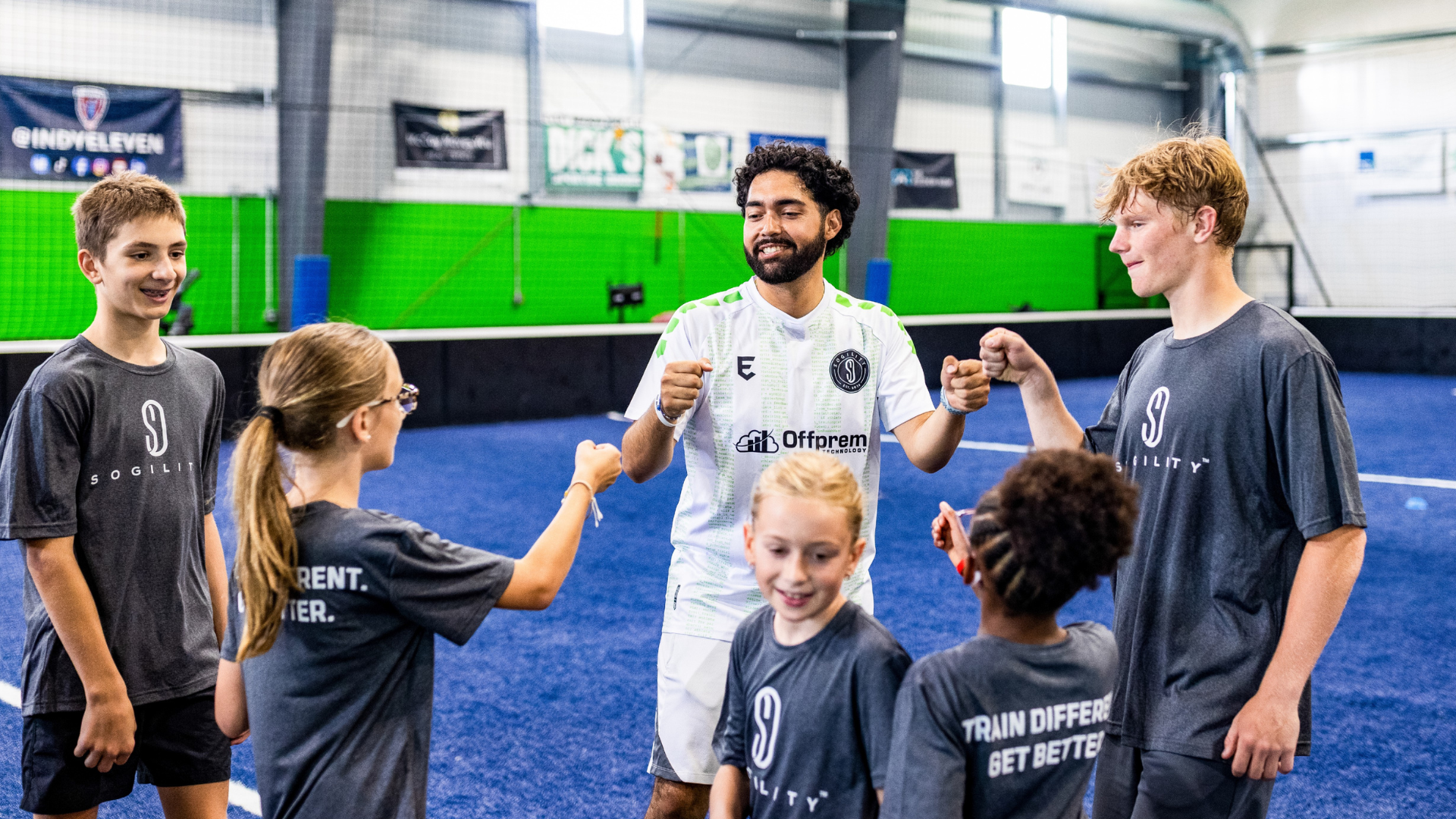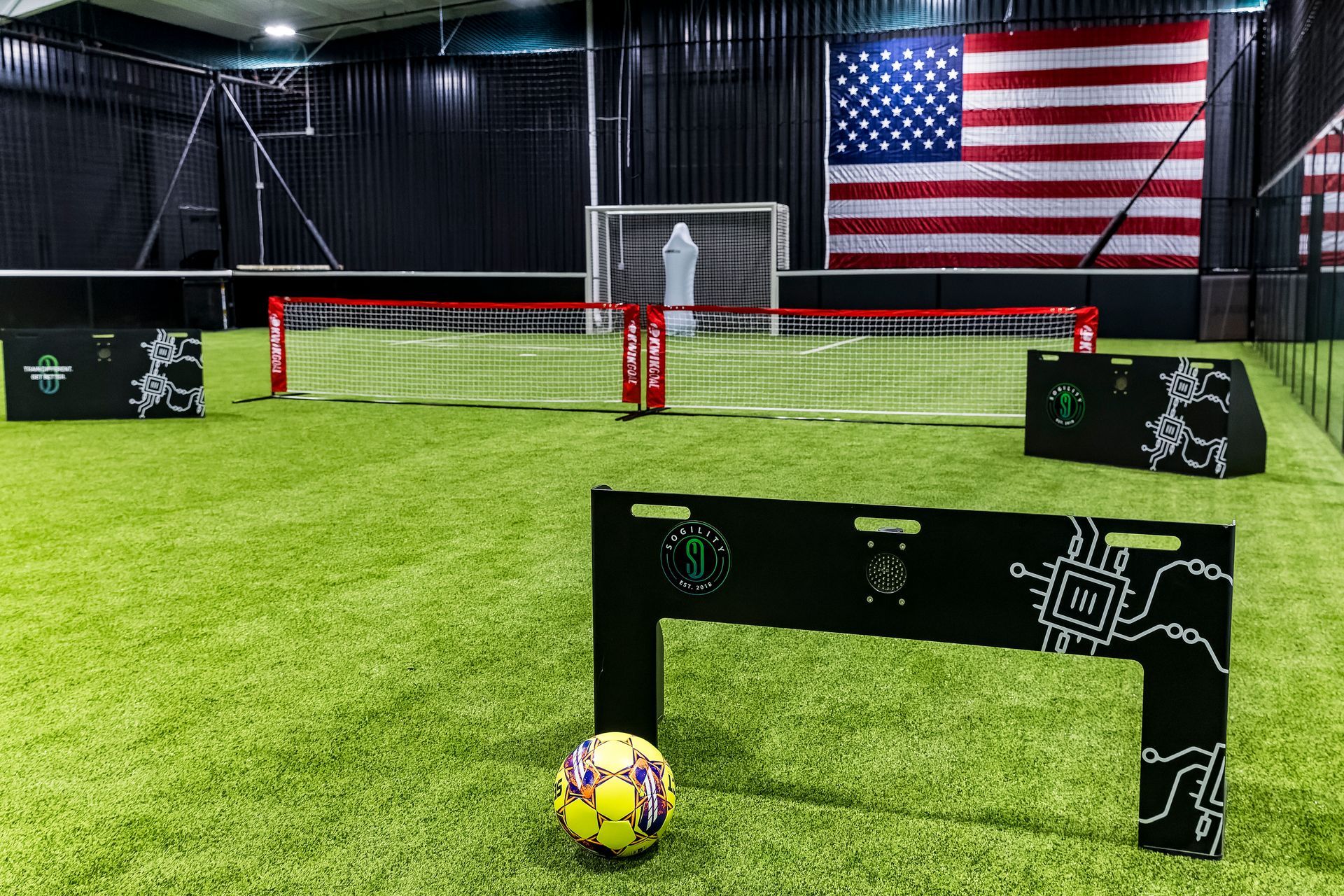Why Modern Coaches Are Embracing Cognitive Training in Soccer
Soccer is evolving. Today’s game is faster, more tactical, and more demanding than ever before. Physical ability and technical skills are still crucial, but there’s another factor that’s become just as important: the
mind. Modern coaches are turning to cognitive training to help players think quicker, process information faster, and make better decisions on the field. At Sogility, we’ve made cognitive training a cornerstone of our development model — because the smartest players often become the most effective ones.
What Is Cognitive Training in Soccer?
Cognitive training focuses on improving the
mental skills
that impact performance:
- Decision-making speed
- Focus and attention
- Anticipation and awareness
- Problem-solving under pressure
In soccer, every second matters. A player must constantly scan the field, process what’s happening, and act — often before the ball even reaches them. Cognitive training builds these skills through drills that simulate real match conditions.
Why Coaches Are Making the Shift
Traditional soccer training emphasized fitness and technique. Those remain essential, but elite coaches now realize games are often won by the players who think fastest.
1. The Modern Game Is Faster
- With high-pressing styles and quick transitions, players must make decisions in fractions of a second.
2. Soccer IQ Wins Matches
- Players who can anticipate runs, identify passing lanes, and adapt instantly have a huge edge.
3. Talent Without Thinking Falls Short
- A player with great skills but poor awareness won’t succeed at higher levels. Cognitive training bridges that gap.
How Sogility Builds Cognitive Skills
At Sogility, we’ve designed training stations that blend technical execution with cognitive demands. Examples include:
- Light-Driven Reactions:
Rebound boards light up in random sequences, forcing players to react quickly while maintaining control of the ball.
- Dual-Task Drills:
Players might dribble while solving visual or memory-based tasks, training the brain to handle pressure and multitasking.
- Game-Like Scenarios: Training isn’t static. Every rep asks players to scan, decide, and execute — just like they would in a match.
This combination of mental and physical work develops both the body and the brain, creating players who are sharp, adaptable, and game-ready.
Benefits of Cognitive Training
For coaches, cognitive training delivers clear advantages:
- Smarter Players:
Athletes who can read the game and anticipate situations.
- Fewer Mistakes:
Quick, confident decisions reduce turnovers and errors.
- Enhanced Composure:
Mental training helps players stay calm in high-pressure situations.
- Team Cohesion: When all players think faster, the team moves as one.
Success Stories From the Field
Professional academies and clubs around the world are investing in cognitive training technology. Players who embrace it are often the ones who rise to the top. At Sogility, we’ve seen youth players dramatically improve not just their touch and speed, but their ability to see the game differently — recognizing spaces, options, and solutions they didn’t notice before.
What Parents Should Know
Parents often focus on skills like dribbling, shooting, or passing. While those matter, the mental side of soccer is what separates the good from the great. Supporting your child in cognitive training ensures they’re developing the full package — the skills and the smarts.
Final Thought
The future of soccer belongs to players who can think as quickly as they move. That’s why modern coaches are embracing cognitive training — and why it’s central to Sogility’s philosophy. By sharpening both the mind and the body, players become more than athletes — they become complete, intelligent soccer players ready for the next level.



